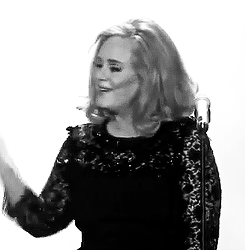The music industry as we know it has been struggling through some big changes over the past couple of years. When hip hop stars are wearing fake diamonds and selling cars or houses to fund the lavish lifestyle to which they have become accustomed, you know there's something wrong.
One of the many attempts to figure out what’s going wrong in music – and how it could be put right – is a group of musicians assembled by Miller Genuine Draft (yes the beer) and called the Global Fresh Collective. We headed over to New York to see what they were coming up with.
Matt Mason brings an unusual range of perspectives to the argument, as a former pirate DJ, former editor of RWD magazine, the author of The Pirate’s Dilemma and a successful entrepreneur. He said that youth culture and technology are transforming underground scenes into global industries and movements. From youth culture out on the edges of the mainstream, he said, come the ideas that ultimately change the mainstream itself – whether it’s pirate radio, hacking, open-source culture, file-sharing or remixing.
Does that mean that a business model based on free music really can be made to work, for the industry as well as the consumer? “There are pirates out there who need to be pursued by the law who are stealing from us,” Mason said. “But there are also exceptional thieves, people who are adding value to what companies do and in these circumstances we need to figure out how we work with them. To compete or not to compete, that is the pirate’s dilemma.”
Piracy may be more of a problem for the bigger labels with bigger stars, whose work leaks straight onto file-sharing sites, but Marcin Czubala, a GFC member from Poland, said that making money from record sales is now a thing of the past for smaller labels too. He speaks from experience: Czubala founded Poland’s first techno label, called Currently Processing, in 1999.
“It’s true, as Marcin said, that you have to have a different approach from major labels,” Pedro Winter, curator of the GFC agreed. “This is why Daft Punk and I quit major companies and started doing it for ourselves.” He blamed over-pricing by the industry as one of the reasons for its current difficulties. “It was completely crazy,” he said. “A CD cost $1 (to produce) so how come they managed to sell it to us for $20 and make that much money?”
That business model was too attractive to be given up without a fight. “In 1999 if the major record labels and governments tried to figure out a way to work with Napster,” Mason said, “we would be having a very different conversation about digital music today.” It was this failure to tackle the problem when it came up that led to the social norm of people expecting to be able to get their music for nothing.
Most participants agreed that there was little hope of putting the genie back into the bottle, and that charging for music would be difficult or impossible for the foreseeable future. Despite participants trying to sound excited about the potential shown by new methods of distribution, some evidentlyhad their doubts.
“One of the things I wonder is whether it’s good that the whole free model makes a lot people listen to more of your music,” said Tablo, the South Korean GFC representative (and a member of the South Korean hip hop band, Epik High). “I’m wondering if it devalues it, it becomes disposable, because you can get it so easily.”
Whether or not recorded music has been culturally devalued, it has certainly lost much its commercial value. Andrey Saveliev, chief editor of SOBAKA magazine, said that piracy was so rampant in Russia that many young artists had given up hope of making a living through CDs or downloads. “They don’t want to earn money by means of music sales but to be very popular on the internet, to build credibility to play more live concerts or DJ sets,” he said.
That lesson may still be a difficult one to swallow: despite its focus on “free”, the conference noted that if 300 million people worldwide were paying $5 a month to consume as much music as they wanted, then the music industry would be twice the size that it is now. That sounds a lot like the kind of wishful thinking that has been holding back record labels for years. Unless someone can come up with a way of charging people for something they’ve got used to getting free, we’re going to have to get used to the sight of Lil' Wayne in a second-hand Ford Fiesta.
A version of this appeared over at Wired.co.uk: HERE
skip to main |
skip to sidebar
Carri Munden (Fashion Designer)
''Loving the blog, JP. Next level >>>''
Tim & Barry (Photographers)
''What you're doing is great, JP. Keep doing what you're good at..."
T2 (Music Producer)
RELOAD!
MTV IGGY
NME
MIXMAG
MTV UK (FILMED INTERVIEWS)
AND THE REST
TABLED TURNED (PRESS ON JP)
- The Independent Interview
- BBC Newsbeat
- The Guardian Profile
- Mass Appeal Interview
- Guardian Profile
- Music Week Profile
- Ticketmaster Interview
- MOBO Interview / Playlist
- BBC Radio 1Xtra Interview
- Reprezent Radio Interview
- MOBO Panel
- 'It Might Just Be That' Interview
- #HALFCAST Podcast
- TBC Podcast (GRM Daily)
- i-D Profile
- The FADER
- Urban Development Interview
- The Guardian
- Wonderland Mag Profile
- List For Life Interview
- Link Up TV Interview
- Channel 4 / Bassline Documentary
- BBC Sound Of 2015 Film
- Knew Knowledge Interview
- JP's Addicted To Dance (RWD)
- MERGE LDN Interview
- 'House Party' (Channel 4)
- My Big Break (Music Week)
- The Observer Feature
- Flavour Magazine Interview
- STATUS Magazine Feature
- Record Of The Day Interview
- CODE Magazine Feature
- Earmilk Interview
- My Day With Channel 4
JP + Lady Leshurr / Swifta Beater + Captain Morgan
JP + SUPERSUPER + CHANNEL 4
JP + T&B + Tempa T + M.H.I
JP + Hyperfrank + D.U.M
Richard Russell (XL Recordings)
''Your blog is excellent..."
Carri Munden (Fashion Designer)
''Loving the blog, JP. Next level >>>''
Tim & Barry (Photographers)
''What you're doing is great, JP. Keep doing what you're good at..."
T2 (Music Producer)
"You're the only man that I can honestly say has their ear on the street covering the whole of the UK. Record labels should give you an A&R job..."
Richard Edgar (Financial Times)
''You're someone who's obviously going somewhere. I may pop up at ChockABlock one of these days!"
Gerrick Kennedy (Los Angeles Times)
"Your blog and XXL column -- SO DOPE!"






.jpg)



